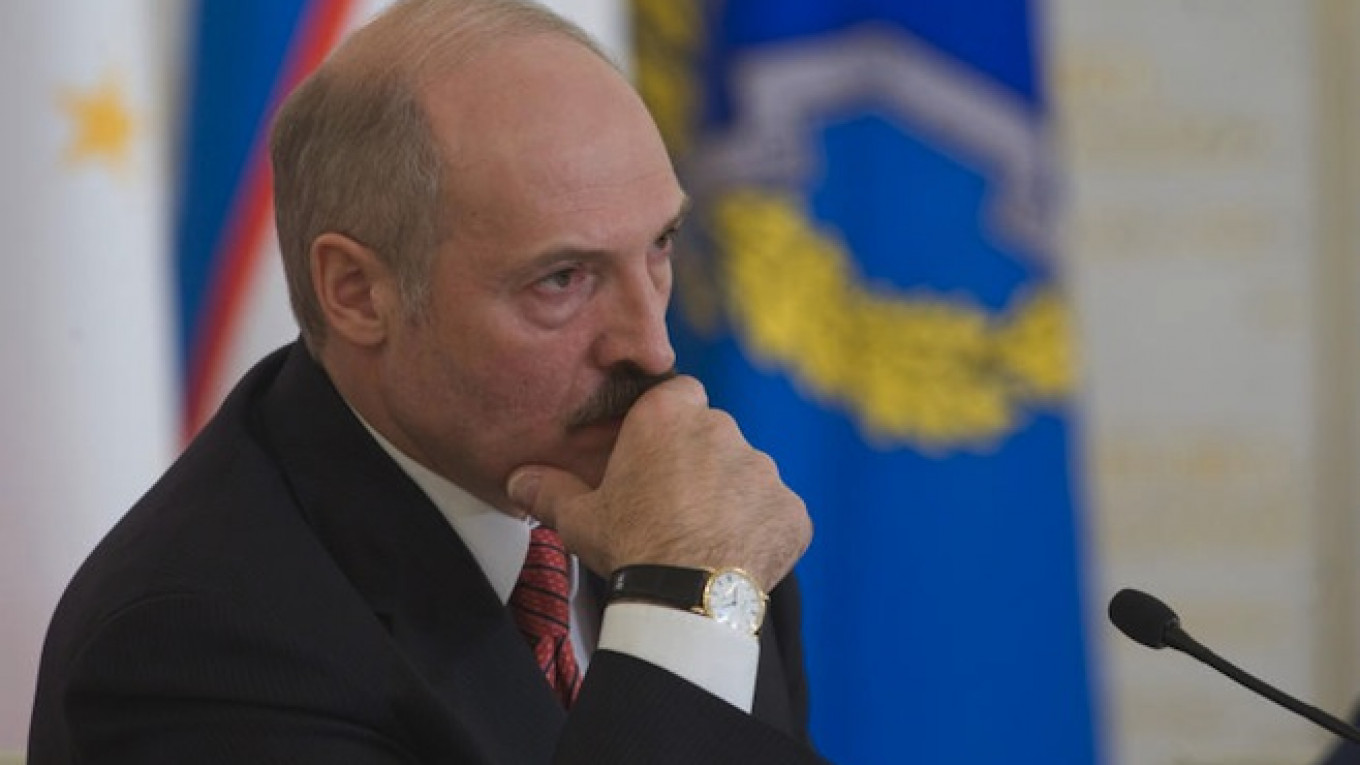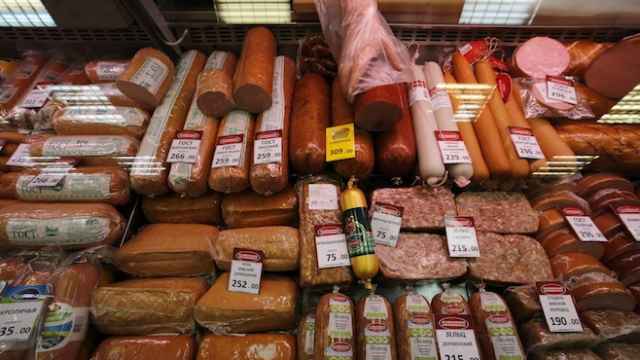Belarussian President Alexander Lukashenko has said that both the NATO alliance and domestic dissenters pose a threat to his country's security, while also pointing a finger in Russia's direction.
In a speech to his country's Security Council, Lukashenko said he did not want to "dramatize the situation," but had some questions about Russia's policies, according to a remarks published on his administration's website on Tuesday.
"The behavior of our eastern brother cannot help but arouse suspicion," he was quoted as saying. "But we are not drawing any conclusions from this yet, myself included, before a conversation with the president of Russia."
Earlier this month, Russia banned meat imports from Belarus, arguing that it had become a transit route for smuggling banned foods into the country in defiance of its sanctions against the West. Lukashenko — an authoritarian leader and one of a handful of Moscow's allies in Europe so far — described the restrictions on his country as "indecent."
"I'd like to find out after all: For what purpose does Russia need such policies toward Belarus?" he was cited as saying on the administration's website.
Lukashenko also told the Security Council that Belarus needed to increase its defense capabilities to guard against NATO forces in the west — and against Russia in the east.
"I don't want to overlook the eastern direction in this situation," Lukashenko was quoted as saying.
In addition to Russia and NATO, Lukashenko also took exception to Western "indirect actions" aimed at subverting public opinion in his country and fomenting dissent.
"A huge importance is acquired by information wars, the activating of the so-called fifth columns and forming a negative public opinion through mass media and the Internet," he said.
Belarus was one of a handful of countries to side with Moscow and vote against a United Nations resolution this spring that denounced Russia's annexation of Crimea as illegal. The other nine were Armenia, Bolivia, Cuba, Nicaragua, North Korea, Sudan, Syria, Venezuela and Zimbabwe.
But despite the apparent alliance with Moscow, Lukashenko has shown a degree of reserve about the annexation, saying in March that it set a "bad precedent."
A Message from The Moscow Times:
Dear readers,
We are facing unprecedented challenges. Russia's Prosecutor General's Office has designated The Moscow Times as an "undesirable" organization, criminalizing our work and putting our staff at risk of prosecution. This follows our earlier unjust labeling as a "foreign agent."
These actions are direct attempts to silence independent journalism in Russia. The authorities claim our work "discredits the decisions of the Russian leadership." We see things differently: we strive to provide accurate, unbiased reporting on Russia.
We, the journalists of The Moscow Times, refuse to be silenced. But to continue our work, we need your help.
Your support, no matter how small, makes a world of difference. If you can, please support us monthly starting from just $2. It's quick to set up, and every contribution makes a significant impact.
By supporting The Moscow Times, you're defending open, independent journalism in the face of repression. Thank you for standing with us.
Remind me later.






